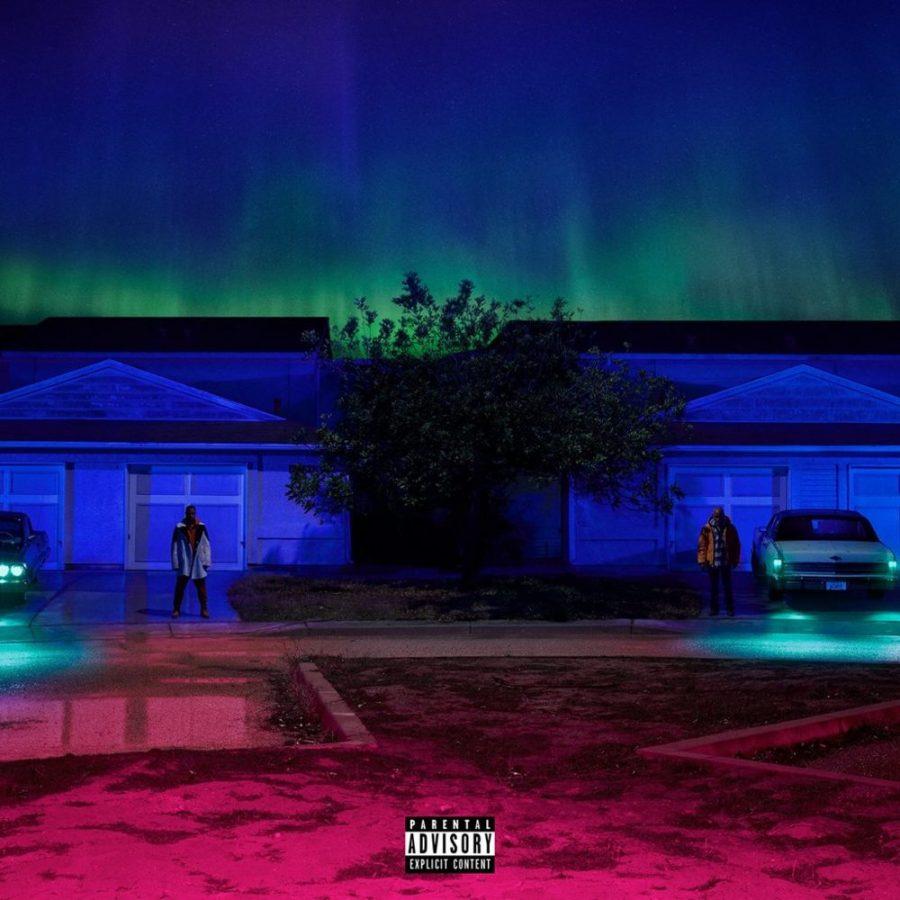“I Decided” That Big Sean is Mediocre
March 30, 2017
Spearheaded by the bass-dripping single “Bounce Back”, rapper Big Sean explores the consciousness that propels the album; poverty, dedication to his craft and lucid conversations with God. From exploring the motivational energy that drives him forward, to a bombastic bravado that stretches from “waking up in beast mode,” and a somewhat odd satisfaction at a lack of silicone in the female physique, Sean pop-ifies psycho dramas on “I Decided,” but in the end produces an unsatisfactory album failing both his listeners and himself.
Selfishness, misogyny, and braggadocio ooze from cracks in a disorganized album that intended to be a bandage for his career.
The album begins with a track titled “Intro” in which Sean takes a fairly conventional route here by using a skit. The listener is immediately chilled to the bone as the voice of a man speaking to God booms, “What am I really even doing?”
This launches into an album far more confusing than the question asked.
Maturation seems to be Sean’s goal. With this in mind, Sean makes “Bounce Back” one of the first songs. The lead single has played on the radio for months, which makes the track familiar to the listener.
Sean raps somewhat incoherently over a heavily emphatic bass drum beat from Metro Boomin’, a star producer. He forges this piece into a form of redemption, but it seems oddly phrased as some of the first words are “Knew that a** was real when I hit it; it bounce back.” This detracts from the message Sean intends to spread. Introducing the track early hooks the listener, despite inconsistent lyrics and the downward spiral into an incoherent, archetypal, and arrogant hip-hop album.
This track is Sean’s projection of himself onto his idol–Kanye–but is unable to reach the heights of Yeezy. From there, Sean takes a tumble into the nethers of the album. His rapping gradually becomes slower and heavier, with the bars staccato and the instrumentals stark.
Such is the track “No Favors” in which the dark prince of hip hop emerges to deliver verses. The rapper Eminem is featured on the track with unparalleled lyricism. He spits, “And tell Dre I’m meeting him in L.A. / White Bronco like Elway, speeding / I’m ’bout to run over a chick, Del Rey CD in? / Females stay beating ’em.” This line on its own in enough to display Eminem’s dense wordplay. First, he references John Elway, who played for the Broncos, while also pointing to O.J. Simpson’s infamous getaway vehicle. This leads into O.J’s history of spousal abuse and ends with an explicit call for assault.
Misogyny aside, both rappers speak of the glamorized grit and toughness of their path to success. They scream the phrase “No Favors” to indicate their struggles in which no one would help them. Both rap about how they were at their lowest point when they reached the path to the greatest change. The beat is very captivating as well. In the beginning, a sort of dark static builds up gradually and just when it seems it can become greater no longer, the verse suddenly begins.
Eminem is both this track’s strength and weakness. Despite his expanded vocabulary, his famed flow is notably absent, and the decline of his voice over the course of two decades is clearly audible. Sean slips even deeper into the dark side of the moon in “Halfway Off the Balcony”, a track whose title may refer to suicide, with a symbolic wave of other messages. He urges the person he reaches out to in this album to not give up. For a surprisingly well-written song, a few mishaps seem to derail the track. He spits, “I realized when it comes to girls that chemistry mean way more than anatomy” but a few unimportant bars later he raps, “So I’ma call my favorite girl and she gon’ bring that a** for me.” Once again, an attempt at maturity quickly collapses into shallow lyricism. Despite this, the beat proves itself to be a standalone number in the key of a Weeknd and Future collaboration.
Stylistic elements of his rapping and and the concept of the album launches into a monologue set against a “pop” beat on “Same Time Pt. 1.” Here the subject matter takes on a romantically-tinged, poetic aspect. The piece takes peers on an introspective journey and dwells on the issues eating way at Sean. Set once again to the staccato bass, a sense of happiness and excitement is expressed, giving the track a sharp contrast to the other songs on the album.
All of Sean’s decisions culminate into the final track, “Bigger than Me” as a reckoning. An angelic choir sings in the background as the listener is elevated into heaven along with Sean as he confronts God. Seeing that everything he has ever done, such as give speeches to the children of Detroit, supersedes him and gives Sean comfort in his accomplishments.
In the outro, he speaks with his mother who has passed away. She tells him that he has made her very proud and supports him in what he does. To Sean, a huge weight has been lifted off his shoulders because perhaps the anxiety he felt was not to please him but his mother. This song does not discount the rest of the pieces on the album however, which are core contradictions to Sean’s intentions.
The album in its entirety is simply two questions: “What have I done?” and “What’s next?” The rapper concludes, “It’s all about living in the moment. Period.” But as he battles his own demons and fights the monsters that live in his head, one question still remains: “Has Big Sean truly improved?”
To answer this, we start from the piece “Intro,” in which Sean tears down his previous work and proposes an alternative which is the album. He steps onto the stage with an introspective and emotional message. But by drawing a parallel with what has been described as the conduct of “reverse psychology” in the rap industry, Sean relates himself to Kanye by denouncing fame and then immediately bragging about it. He manages to create an album that every artist has made in their career. The concept of a “comeback” album is one that all attempt and all fail with the most notable example being “Relapse” by Eminem.
While avoiding the bold political statements of his contemporaries, Sean tries to keep instrumentals incredibly restrained, yet ultimately fails. He simply leans on a strong bassline as a crutch to keep the album standing and uses it as a ploy to divert attention away from an undistinguished rapping ability. It’s very apparent that he cannot disconnect himself with the image of a pop star and therefore, is only as successful as his producer.



